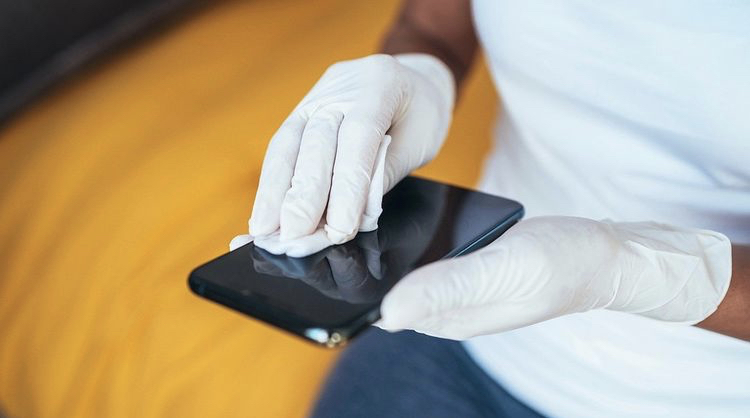How to Adapt Your Routines During the Coronavirus Pandemic
avril 6, 2020

Life as we know it has drastically changed due to the COVID-19 pandemic, and navigating this new world can be a challenge, to say the least. Nobody knows how long this coronavirus pandemic will last or when the curve will start to flatten. Infectious disease experts are still learning the specifics of how exactly it is spread and government bodies are constantly updating their recommendations and policies.
We’ve entered unchartered territory, and that means everyone needs to make adjustments in their everyday life. In today’s blog, we’ll be providing guidance on how to handle scenarios you may find yourself in during the coronavirus pandemic:
Getting Supplies
Preparing for a pandemic of this proportion is important, but that doesn’t mean you need to stockpile every household item you can get your hands on. Here are the essentials you should supply yourself with:
- EPA-approved disinfectants
- Prescription medications
- Non-perishable goods (canned foods, dried goods)
- Frozen goods
- Trash bags
- Laundry detergent
Necessary Outings
The Government of Canada is recommending that people practice physical (social) distancing as much as possible. With that said, you’ll likely need to go to the grocery store or run other necessary errands at some point. Here’s how you should handle outings during the COVID-19 pandemic:
1. Have a Plan in Place
The fewer people going in and out of your household, the better. You should designate one person to be the household errand-runner to minimize outside exposures. Also, have a disinfecting station set up in a low-traffic area where the errand-runner can sanitize the items they are bringing into your home.
2. Be Cautious and Prepared When You’re Out
When you’re in public you’ll want to practice physical distancing by staying at least six feet away from other people. Bring along an EPA-approved disinfectant and wipe down the handles of carts and baskets you’ll be touching. Wash and/or sanitize your hands as frequently as you can and avoid touching your face.
3. Practice Good Hygiene When You Get Back
When you return to your residence, you’ll want to wash your hands for at least 20 seconds. Make use of your disinfecting station, and sanitize all the items you have purchased. All produce should be thoroughly rinsed before being put in your kitchen.
Everyday Chores
Even everyday chores like laundry and cleaning need to be altered in the wake of the novel coronavirus. We recommend doing the following:
Laundry
- Thoroughly disinfect your laundry hamper.
- Avoid shaking dirty laundry or tossing it between baskets.
- Clothes, linens, and towels should be frequently washed on the warmest setting to remove germs.
Cleaning
- Clean everything you touch, but especially high-touch areas like doorknobs, keys, keyboards, and your phone.
- Items should be left wet for at least 3 minutes after using EPA-approved disinfectants.
Taking Care of Your Pets
There’s little evidence to support the fact that dogs and cats are susceptible to catching the coronavirus, but they can be carriers of the virus as a surface. If you want to play with your pet outside, maintain physical distance from others and don’t let people touch your pet. If you end up getting sick and don’t have anyone else to take care of your pet, wash your hands as frequently as possible.
Someone In Your Home Getting Sick
The majority of people who get COVID-19 will only have mild symptoms and they’ll be able to recover at home. They should only be brought to the hospital if they are at risk of getting seriously ill. These are the precautions you should be taking if you’re looking after a loved one that has been diagnosed with COVID-19 at home:
- Consult with their doctor by phone or email.
- Isolate the sick person in a separate room and ask them to use a different bathroom if you have one available.
- Refrain from sharing items with them.
- Wear gloves if you need to do their laundry.
- If you have a facemask available, ask them to wear it.
- Continue to frequently clean your home and wash your hands.
With these tips, we hope you’ll be able to better navigate life during the COVID-19 pandemic.
As part of the nation’s critical infrastructure, Canadian Plasma Resources will be remaining open during the COVID-19 pandemic. If you are an eligible donor in good health, we ask that you book and keep your appointments. Donated plasma is essential to creating lifesaving therapies for patients living with rare and chronic conditions.
Source
Andrew, S. (2020). How to coronavirus-proof your home. CNN. Retrieved from https://www.cnn.com/interactive/2020/03/health/coronavirus-tipsheets/coronavirus-proof-your-home/index.html









